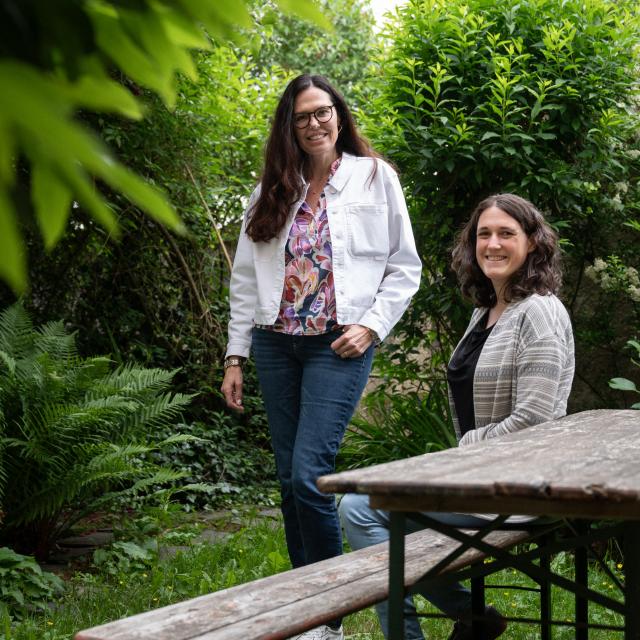Looking for a connection: What the helpline reveals about our society
By Laura Tomassini, Lex Kleren Switch to German for original article
At a time when crises, wars and AI are dominating everyday life, more and more people are looking for something very simple: a sympathetic ear. Although the number of calls to the helpline SOS Détresse has remained stable for years, the topics are changing: Loneliness, suicidal thoughts, relationship problems. Why listening is now an act of solidarity - and why volunteers play such an important role.
The pandemic is over, things are back to normal in Luxembourg, but the world as a whole has changed in recent years – through new possibilities offered by artificial intelligence, but above all political changes and conflicts that are shaking up the general understanding of democracy in Europe. As society changes, so does the need of many people for someone to listen to them. It is not that this need has decreased – with over 3,760 calls received by SOS Détresse in 2024, it has remained more or less stable since before the pandemic – but rather that the reasons for wanting someone to listen to them have changed.
"The issues that concern people are as diverse as the people themselves, " says Jessica Levy, a psychologist at SOS Détresse. The helpline number 454545 is a point of contact for anyone looking for a sympathetic ear, someone who will listen with an open mind. While concerns and fears about the political situation have taken centre stage in recent years, many people seem to have become accustomed to the current state of the world and are once again turning their attention to more personal issues that affect them directly in their everyday lives. One significant "novelty" of the recent "passé" is the topic of loneliness, the kind of social isolation that was less prevalent before coronavirus. In 2024, the helpline received over 550 calls about loneliness. Before that, the number was always around 300 or 400 at most.
More open conversations about suicide
"It's pure speculation, but many people were alone during the pandemic and social skills are quickly forgotten. Students sat in front of their laptops instead of at university, many threw themselves into gaming or social media and have kept up these rituals ever since, " says SOS Détresse director Nadja Bretz, trying to find a possible explanation. Although Covid itself is no longer an issue that is addressed, the aftermath can still be felt in a certain way, says Levy: "Many contacts have been broken off and not re-established and there has been a lot of division among people. You might not consciously think about the one friend you haven't spoken to for five years, but you still miss her." This is exactly what most of the calls are about: Relationships, be they within the family, with friends, with the partner or with work colleagues.
One observation that is both worrying and hopeful is the number of calls about suicidal thoughts. "These have increased enormously, which at first seems frightening, but can also be a good sign, as it may show that people finally have the courage to talk about suicide and get help before they hurt themselves, " says Levy. A total of 127 conversations were held on the subject of suicide in 2024. This was over 40 per cent more than the previous year. "There were a lot of respectful articles and reports on suicide in the media and mental health is generally being discussed much more, so there is a more open approach to it in society, which is of course a positive development, " explains Bretz.
You want more? Get access now.
-
One-year subscription€185.00/year
-
Monthly subscription€18.50/month
-
Zukunftsabo for subscribers under the age of 26€120.00/year
Already have an account?
Log in


